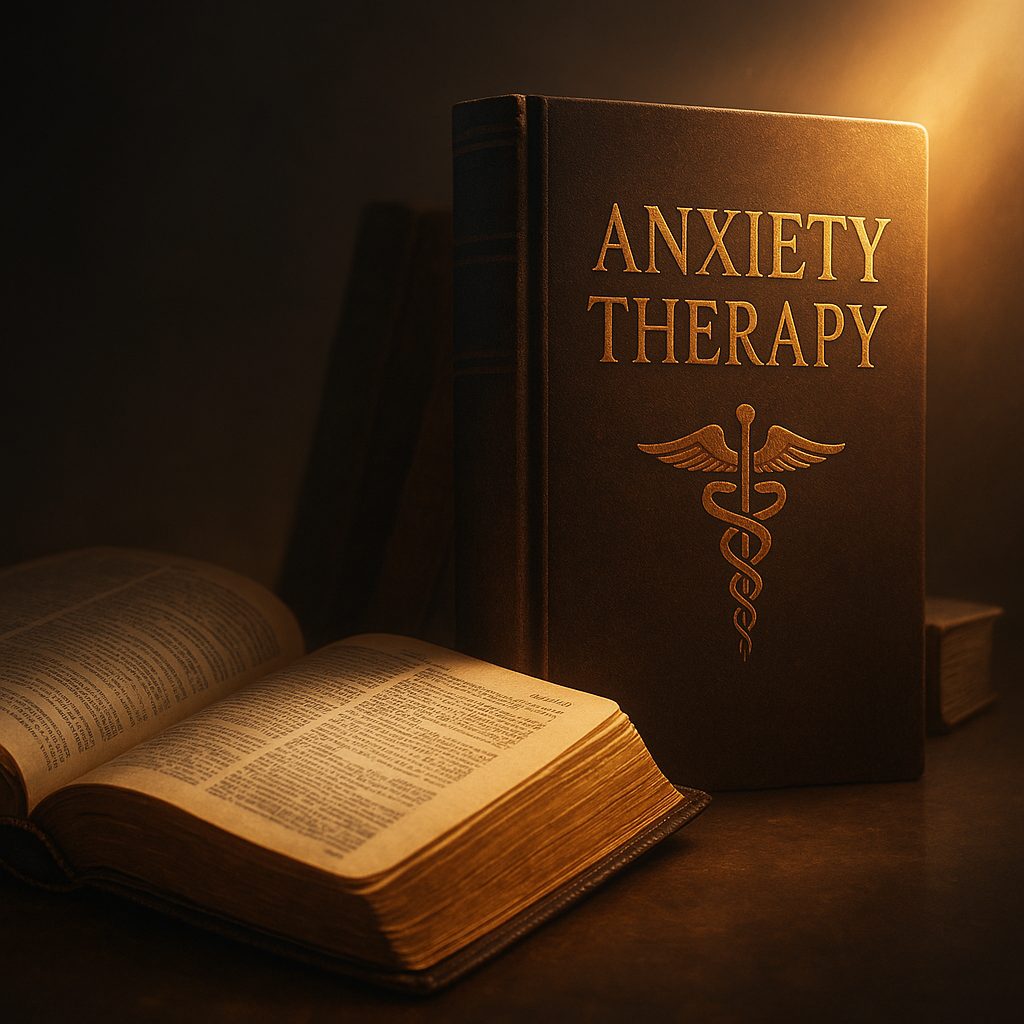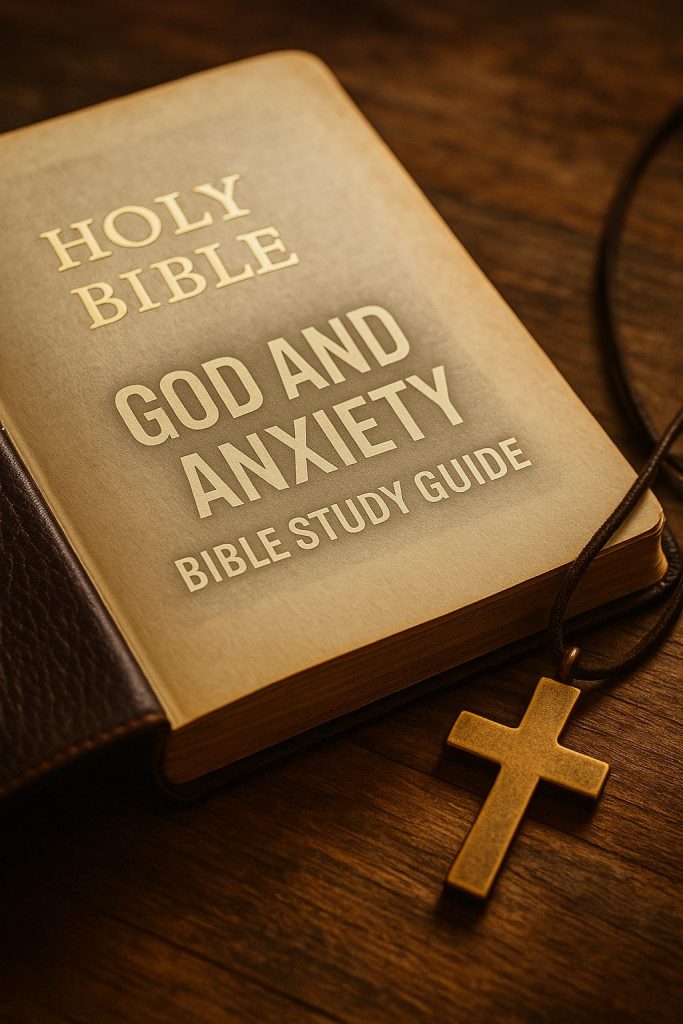God And Anxiety Bible Study Guide: Peace That Lasts
Estimated reading time: 7 minutes
Introduction: Why This Matters Now
Anxiety touches every community. Accordingly, many believers wonder how to hold faith and physiology together without shame. Above all, God invites you to bring your whole self to Him. This god and anxiety bible study guide distills the best of Scripture, psychology, and medical standards into one practical, prayerful session you can complete on your phone. Additionally, you will find internal cornerstone articles and research‑backed resources to keep learning.
As a starting point, consider the scope. According to the World Health Organization, anxiety disorders affected more than 300 million people worldwide in 2019 (WHO fact sheet). Moreover, the National Institute of Mental Health estimates about 19% of U.S. adults experience an anxiety disorder each year (NIMH statistics). Therefore, you are not alone, and your struggle is neither rare nor unspiritual.
Scripture keeps the conversation honest. Jesus says the Father knows your needs (Matthew 6:25–34). Consequently, you can cast every care on Him because He cares for you (1 Peter 5:7). Likewise, clinical guidance affirms that evidence‑based therapy and, when appropriate, medication can help you regain calm (AAFP clinical guideline). Notably, this guide integrates both lanes from the outset.
For deeper background right now, explore these cornerstone resources: a concise list of Bible verses for anxiety, a step‑by‑step prayer for anxiety guide, practical deep breathing exercises, and how to stop overthinking with biblical tools. Altogether, these pieces connect today’s study to daily rhythms.
Why Anxiety Persists: Mind, Body, And Spirit
Physiologically, your nervous system reacts fast to perceived threat. Additionally, the amygdala signals the hypothalamus, releasing stress hormones that quicken the heart and tighten muscles. Harvard Health explains this “fight‑or‑flight” response and how chronic activation strains the body (Harvard Health overview). Therefore, intense symptoms do not prove spiritual failure; they show a system running hot.
Psychologically, anxious thinking forms loops: “What if?” becomes “Of course it will.” Accordingly, the mind overestimates danger and underestimates coping. Scripture answers with renewal. Paul urges believers to be transformed by the renewing of the mind (Romans 12:2) and to take every thought captive to Christ (2 Corinthians 10:5). Likewise, cognitive‑behavioral therapy (CBT) trains you to notice distortions and replace them with truth‑based statements.
Spiritually, worry narrows our view until God seems distant. Nevertheless, the Psalms teach honest lament that moves toward confidence: “When anxiety was great within me, your consolation brought me joy” (Psalm 94:19). Furthermore, Jesus models prayerful surrender under crushing distress (Luke 22:44). Consequently, this guide treats anxiety as a whole‑person issue—never a simple lack of faith—and invites you to combine prayer with wise action.

Bible Promises And Practical Skills For Calm
Begin with prayerful surrender. Additionally, Philippians 4:6–7 calls you to present requests with thanksgiving; then God’s peace guards your heart and mind in Christ Jesus. As a matter of fact, research shows prayer can reduce anxiety symptoms when added to standard care (randomized trial on prayer). Therefore, pray specifically: name the fear, ask for help, and thank God for present mercies.
Next, practice breath‑anchored meditation on Scripture. Additionally, slow diaphragmatic breathing activates the body’s relaxation response through the vagus nerve, which helps quiet arousal (stress response basics). Then, pair each exhale with a short verse such as, “Be still and know that I am God” (Psalm 46:10). Consequently, your body and your beliefs begin working in the same direction.
After that, challenge anxious thoughts on paper. Additionally, ask: What evidence supports this fear? What would I say to a friend? What does Scripture say? Therefore, reframe with a balanced truth: “My future is uncertain, yet the Lord directs my steps” (Proverbs 16:9). Moreover, reinforce change by returning to cornerstone practices like these breathing exercises and this prayer for anxiety guide.
Finally, choose community. Additionally, wise counsel protects you (Proverbs 11:14). Therefore, share your story with a trusted believer, pastor, or counselor and ask for prayer. Likewise, consider a brief plan for gradual exposure to feared situations while you keep your eyes on Christ. Consequently, courage grows one step at a time.
God And Anxiety Bible Study Guide: Faith And Medicine In Balance
Christians can rejoice in every good gift God provides through skilled care. Additionally, first‑line treatments for chronic anxiety include CBT and certain antidepressants, according to family‑medicine guidance (AAFP guideline). Therefore, using therapy or medication under a clinician’s supervision can be a faithful act of stewardship, not a failure of belief.
Because medication addresses symptoms, you still renew the mind and practice skills. Additionally, many believers find the best results when spiritual growth, counseling, healthy rhythms, and—when indicated—medication work together. Consequently, you pursue wholeness from multiple angles. Moreover, always involve prayer before appointments and decisions.
For quick reference, review the prevalence data again to normalize your experience (NIMH; WHO). Additionally, explore a Christian FAQ that explains how professional help and faith complement each other (Focus on the Family FAQ). Therefore, you can move forward with clarity and peace.
Bible Study On Anxiety: Daily Practices That Work
Build a small rule of life. Additionally, schedule morning Scripture, a midday breathing break, and an evening gratitude review. Consequently, your day accumulates peace. Likewise, anchor each rhythm to a verse: Isaiah 41:10 for courage, Psalm 23 for rest, and John 14:27 for calm. Moreover, keep go‑to verses handy by visiting the curated list of Bible verses for anxiety.
Because movement changes mood, walk briskly for 20–30 minutes most days. Additionally, exercise lowers anxiety and improves sleep. Therefore, treat motion as prayer: thank God for breath and strength while you walk. Likewise, limit caffeine and alcohol when symptoms surge, and prioritize consistent sleep. Moreover, use brief journaling to capture progress.
When a spike hits, run this three‑step reset: breathe slowly for one minute, pray a short verse, and reframe one thought. Additionally, text a trusted friend and ask for intercession. Therefore, you interrupt the spiral before it gains momentum. Notably, this god and anxiety bible study guide approach keeps tools simple enough to repeat anywhere.

Christian Anxiety Help: Recommended Books And Tools
These resources pair well with today’s session. Additionally, they reinforce biblical hope while teaching practical skills. Therefore, choose one and begin this week.
- “Anxious for Nothing” — Max Lucado. A pastoral, Scripture‑rich companion that helps you practice Philippians 4 daily. Buy on Amazon.
- “Get Out of Your Head” — Jennie Allen. A readable plan for interrupting toxic thought spirals with gospel truth and community. Buy on Amazon.
- “The Anxiety and Phobia Workbook” — Edmund Bourne. A practical CBT field guide with worksheets you can do alongside prayer. Buy on Amazon.
- NIV Study Bible. Study notes and cross‑references that deepen daily reading and reflection. Buy on Amazon.
Additionally, keep nearby links to cornerstone training like guided Christian meditation for anxiety and this field manual for stopping a panic attack. Consequently, you will have a plan for both prevention and in‑the‑moment relief.
Conclusion: Hope For A Joyful Life
In Christ, peace is not a theory. Additionally, He promises to guard your heart and mind as you pray and practice (Philippians 4:6–7). Therefore, combine Scripture, community, skills, and—when appropriate—clinical care. Moreover, return to this god and anxiety bible study guide whenever worry rises, and share what helps with a friend who needs courage today.
As you proceed, keep exploring trusted research. Additionally, the sources in this study come from medical and theological touchpoints like NIMH, WHO, Harvard Health, AAFP, and peer‑reviewed work on prayer. Therefore, you can take the next faithful step with confidence and compassion for yourself and others.






